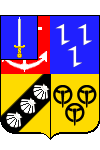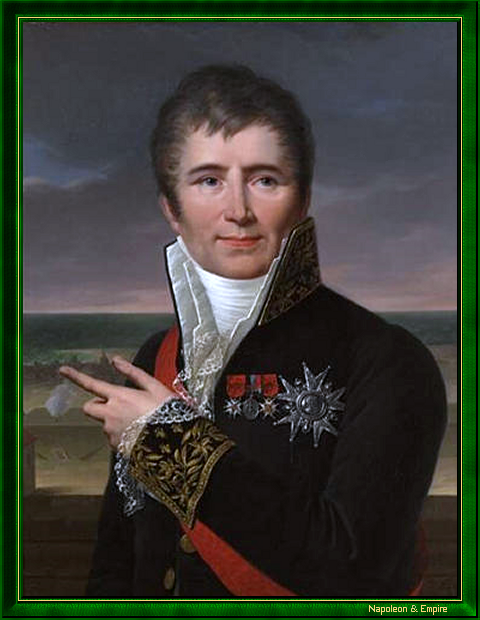Charles-Henri Verhuell
Count of Sevenaer and Count of the Empire

Carel Hendrik (Charles-Henri) Ver Huell was born in Doettinchen, Holland, on February 11, 1764. Although he initially joined his country's army, he soon moved on to its navy, in 1779. Two years later, he was promoted to second lieutenant.
On August 5, 1781, his courage during the Battle of Doggerbank, between the English and Dutch fleets, led to his promotion to the rank of lieutenant. With the exception of his captain, all the other officers on the Argo, the frigate on which he served, died.
From 1782 to 1795, Ver-Huell sailed the Mediterranean, the African coast, the North Sea, the Baltic and finally the West Indies. Captain of a frigate in 1791, captain of a ship in 1795, he left the service that year, after the disappearance of the United Provinces and their replacement by a Batave republic.
He only returned to the sea in 1803, at the request of the First Consul Napoleon Bonaparte, who promoted him to rear-admiral and entrusted him with the Dutch Flushing flotilla. The flotilla, which was to protect Antwerp and the Scheldt estuary, successfully confronted Admiral George Keith Elphinstone's English fleet on May 16, 1804, earning Verhuell the rank of vice-admiral and the Legion of Honor. On July 17, 1805, he repeated the feat, this time off Cap Gris-Nez.
In 1806, as his country's Minister of the Navy, he headed the deputation to Paris to present Louis Bonaparte with the Dutch crown. As a reward, his new king made him Marshal, Grand Cross of the Order of the Union and Ambassador to the Emperor.
In 1809, Verhuell commanded the Dutch fleet during the British takeover of Walcheren, and made an effective contribution to the rout of the invaders, for which Louis showed his satisfaction by making him Count of Sevenaer.
The following year, when Holland was reunited with the Empire, he chaired the commission in charge of departmentalizing the country. Verhuell joined the French fleet and was given command of all naval forces stationed between Ems and Danzig, with the task of organizing the defense of these regions.
Made a Count of the Empire on March 1, 1811, he added to his duties, from April 1812, the command of the naval armies of Helder, Texel (communes in northern Holland) and Zuyderzée (a French department with Amsterdam as its capital), which his compatriot Admiral Jean-Guillaume de Winter could no longer manage due to illness.
During the last months of 1813 and the first of 1814, Charles-Henri Verhuell steadfastly defended the Helder and the fleet he had concentrated there, surrendering them only after the fall of the Empire.
Having returned to Paris, Verhuell obtained his naturalization from King Louis XVIII in December 1814, as well as confirmation of his ranks and titles. Verhuell remained inactive during the Hundred Days, but his name was mentioned when it came to finding a commander for the two frigates that the provisional government had placed at Napoleon Bonaparte's disposal in Rochefort for his passage to the United States. The project was never pursued.
The second Restoration made him a peer in 1819, three years after he had been admitted to retirement. He then devoted himself to Freemasonry, of which he was a senior member, and to the fight for the abolition of slavery.
Charles-Henri Verhuell died in Paris on October 25, 1845, and was buried in the Père-Lachaise cemetery (28th division).
"Amiral Charles-Henri Verhuell" by Louis André Gabriel Bouchet (1759-1842).

Verhuell's name is inscribed on the 1st column (north pillar) of the Arc de Triomphe de l'Étoile.
From 1810, this Dutch patriot claimed to be French. His hatred of England, the implacable and victorious enemy of the Dutch colonial empire - a hatred widely shared in our country at the time - undoubtedly facilitated his integration.
On St. Helena, Napoleon regretted that the project to entrust Verhuell with the Rochefort frigates had failed: If this mission had been entrusted to Ver-Huell, as I had been promised, it is probable that he would have passed...